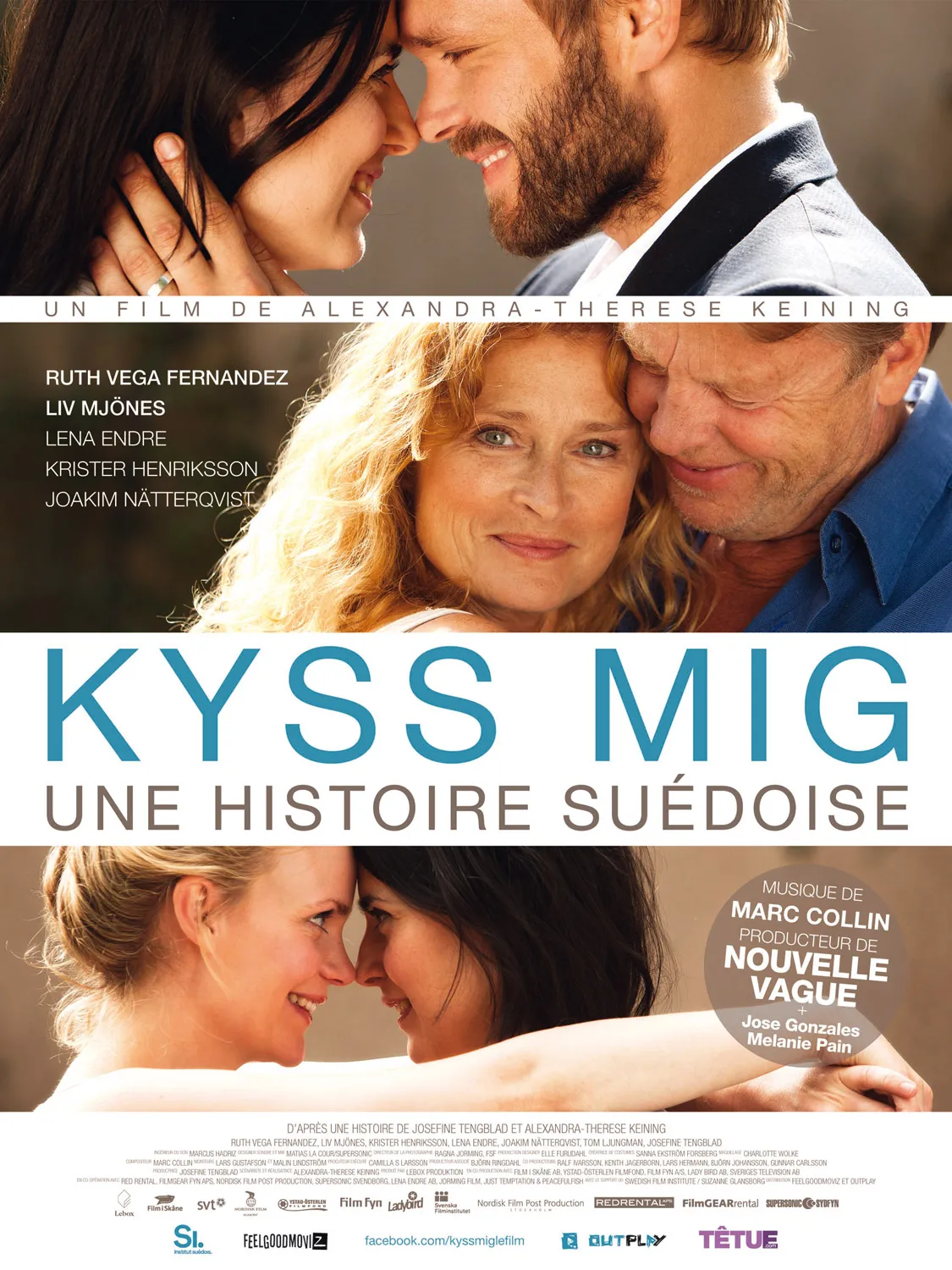Kiss Me (2011)
Kiss Me, directed by Alexandra-Therese Keining, is a Swedish romantic drama that explores themes of self-discovery, love, and identity through the story of two women whose lives are unexpectedly intertwined. The film begins at a family celebration, where Mia, a successful but emotionally reserved architect, attends the engagement party of her father, Lasse, to a woman named Elizabeth. Mia is there with her fiancé, Tim, with whom she shares a stable but passionless relationship. At the party, Mia meets Elizabeth's daughter, Frida—a free-spirited, openly gay landscape designer. While their initial interaction is polite and distant, a subtle spark between them is undeniable. Mia, who has never questioned her heterosexual identity before, is surprised by her growing attraction to Frida, a woman who embodies freedom and emotional honesty—qualities Mia subconsciously longs for. Shortly after the party, Elizabeth invites Mia and Frida on a weekend getaway to the Danish countryside. It is during this trip that the emotional distance between Mia and Frida begins to shrink. Away from their families and societal pressures, the two women find themselves sharing intimate conversations, laughter, and moments of vulnerability. One evening, their simmering attraction culminates in a spontaneous kiss, which quickly evolves into a passionate encounter. For Frida, who is in a committed relationship with her partner Elin, this moment is both exciting and confusing. For Mia, it is life-altering. The experience forces her to confront feelings she’s never had before and throws her future with Tim into doubt. As the weekend progresses, the physical and emotional connection between Mia and Frida intensifies. However, when they return to their everyday lives, reality sets in.
Back in Stockholm, Mia tries to suppress what happened, convincing herself that it was a one-time lapse. But her inner conflict becomes unbearable as she realizes she can’t ignore the truth about her feelings. Her relationship with Tim begins to unravel, though she hesitates to end it, fearing the disappointment it may cause her father and others around her. Frida, too, struggles with guilt toward her partner, Elin, but unlike Mia, she’s more in tune with her emotions and more comfortable being honest about them. As fate would have it, Mia and Frida cross paths again, and this leads to the rekindling of their affair. Their love grows stronger, and they begin to imagine a future together, but they also understand that this choice comes with painful consequences—not just for themselves, but for their families. Mia’s internal journey is at the heart of Kiss Me. Raised with traditional values and always following a structured path, Mia finds herself torn between what’s expected of her and what she truly wants. Her father's upcoming wedding to Frida’s mother further complicates things. If Mia were to pursue a relationship with Frida, it would not only mean breaking off her engagement but also forming a romantic connection with the daughter of her soon-to-be stepmother. The taboo nature of this situation weighs heavily on her, yet the authenticity of her feelings becomes increasingly impossible to deny. Meanwhile, Frida becomes more assertive about her own desires, encouraging Mia to live truthfully, even if it means shaking the foundations of their families' lives.
As the story progresses, both women are forced to make decisions about their futures. Frida breaks up with Elin, choosing not to continue a relationship that lacks honesty. Mia finally admits her feelings to Tim and ends their engagement, a painful but necessary step. These decisions cause ripples throughout both families, leading to heartbreak, confusion, and confrontation. Yet, through the turmoil, there is also a sense of liberation. Mia begins to accept herself fully for the first time in her life. She understands that love doesn’t always fit into neat boxes, and that sometimes, the right path is the one that feels the most uncertain. In the film’s final act, Mia and Frida find themselves at a crossroads. Their bond has grown stronger, and despite the complications, they realize that their love is worth fighting for. The movie ends on a hopeful note, not with grand declarations or dramatic reunions, but with quiet certainty. Mia chooses to walk away from the life that was planned for her, embracing the unpredictable journey ahead with Frida. It's a subtle but powerful resolution that speaks to the film’s core message: that real love—messy, complicated, and brave—can transform us in the most unexpected ways. Kiss Me is more than just a romance. It’s a sensitive portrayal of personal awakening and emotional honesty. Through Mia and Frida’s story, the film challenges traditional notions of love, gender, and family, asking viewers to consider what it truly means to live authentically. With intimate cinematography, a thoughtful script, and moving performances by Ruth Vega Fernandez and Liv Mjönes, the film paints a compelling portrait of two women daring to follow their hearts, even when the world around them resists. It shows that love is not bound by convention and that the journey to self-acceptance, while difficult, is ultimately freeing.




-1739843129-q80.webp)